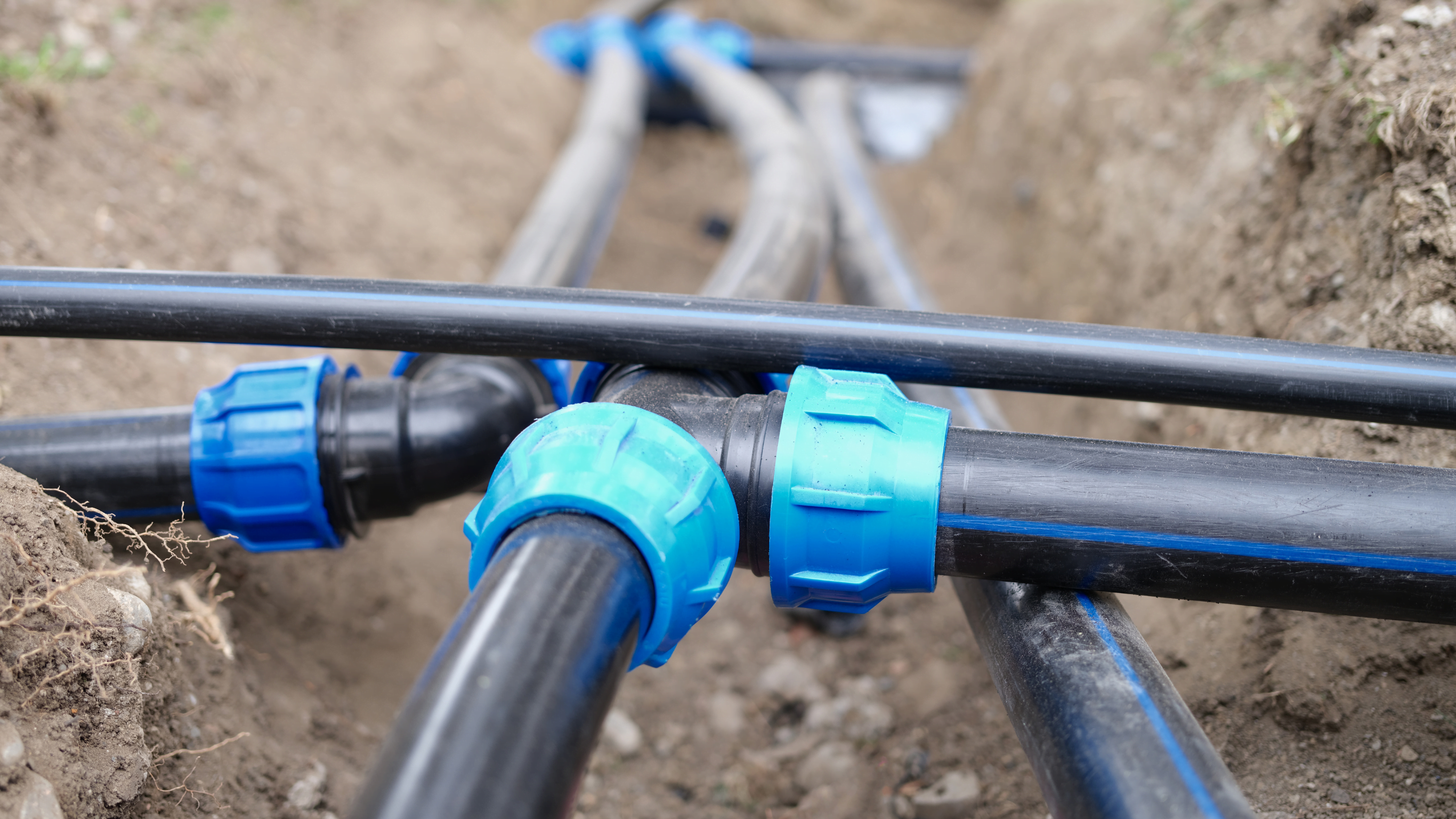Winter Plumbing Woes: Calgary Edition
If you’ve lived through even one winter in Calgary, you know how cold this city can be. Temperatures here have been known to drop so low that people can play frisbee with clothing items that freeze solid. However, while winter weather in Calgary can definitely provide… unique opportunities for entertainment, it can also pose significant hazards to the plumbing in your home.
Fortunately, we’ve performed more than 300 plumbing repairs this year alone — so we’re extremely familiar with the damage winter temperatures can cause. Follow our advice below and learn how to winterproof your pipes and water fixtures against common seasonal threats.
How Does Winter Impact Your Plumbing?
The single biggest threat to your pipes during winter comes from cold temperatures. We all know that water freezes solid in sub-zero conditions, but what most people don’t realize is just how vulnerable your pipes and water fixtures can be on cold days and nights — even when they’re located indoors!
It’s also vital to remember that water isn’t the only substance affected by the cold. Oil also becomes thicker when the temperature drops, which can create unexpected drain problems (we’ll explain this in more detail below; don’t worry).
Knowing what winter weather can do to your plumbing is half the battle, so congratulations — you’re already making progress! Now it’s time to learn about specific winter plumbing issues and how you can take steps to avoid them.
The 3 Most Common Winter Plumbing Problems (and How to Prevent Them)
We see a lot of plumbing issues in Calgary buildings every winter, but these are by far some of the most frequent. Address these headaches preemptively by following the simple tips provided.
Freezing Pipes
Pipes that haven’t been properly insulated before cold weather strikes are vulnerable to freezing. When the water in a pipe freezes, it expands due to the unique shape of water molecules and puts pressure on the pipe from inside. This pressure can eventually crack the pipe, which leads to leaks and flooding when the ice eventually thaws.
You can reduce the risk of your pipes freezing by:
- Wrapping insulation around the pipes in your home
- Letting a tiny stream of hot water trickle through faucets overnight
- Keeping the heat on when you aren’t home
From a sustainability perspective, it’s far better to focus on insulating your pipes than it is to let your faucet drip or run your thermostat all winter long. Insulation is a passive solution that won’t increase your carbon footprint or drive your utility bills up — in fact, it could actually reduce them.
Clogged Drains
As we mentioned earlier, cold temperatures also cause oil to thicken. If oil solidifies in your kitchen sink or bathtub drains, it can easily clog them and prevent you from using those fixtures.
Don’t reach for the drain cleaner right away, though! Harsh chemicals can weaken your pipes and make them more susceptible to breakage in the future. Instead, minimize your chances of getting a clogged drain this winter by:
- Regularly pouring hot water down drains to dissolve buildup before it gets too thick
- Keeping oils and fats far away from the sink in your kitchen
- Never flushing anything down the toilet (unless it explicitly belongs in the toilet, of course)
Sediment Buildup in the Water Heater
This problem isn’t directly caused by cold temperatures — but you don’t want to be stuck without a functioning water heater in the middle of winter. Unfortunately, many Calgarians find themselves in that exact predicament each year because they haven’t maintained their water heaters properly during the warmer months, and sediment has build up inside the tank.
Minerals such as calcium and magnesium naturally build up over time as your water heater is running normally. Eventually, they form particles that sink down to the bottom of the tank and collect there. Enough sediment can adversely affect your heater’s efficiency, and eventually block the water lines entirely.
The easiest way to prevent sediment buildup is to flush the tank in your water heater about twice a year. If you don’t feel comfortable doing it yourself, call an experienced plumber for help.
A Quick Guide to Winterizing the Plumbing in Your Home
No time to read everything we wrote in the section above this one? Don’t worry; we get it ‚— winter is coming and you need to act fast! Here’s the fast version of what to keep in mind when winter proofing your plumbing:
- Insulate all the pipes you can access in your home — not just the pipes near the exterior. It can get cold inside too, especially overnight or when you’re out of the house.
- Keep the whole house a consistent temperature by opening cabinets and interior doors so that heat flows evenly throughout the space. Consider using a space heater to warm basements and other rooms where the temperature is naturally lower.
- If necessary, let a trickle of hot water flow through taps overnight and keep the thermostat running when you’re out of the house.
- Keep fats and oils out of your drains (including the toilet).
- Pour hot water down all of your drains regularly to flush out old grease that may be collecting in them.
- Flush the tank in your water heater every six months
Finally, remember to call for help if a plumbing problem is beyond your ability to handle. Licensed professional contractors are qualified to repair pipes, unclog drains, maintain water heaters, and fix emergency situations.
Protect the Plumbing in Your Calgary Home This Winter
Life’s always better with hot, running water — especially during a cold winter in Calgary. Make sure that you can always access this vital resource by following the steps above and knowing when to turn things over to the pros.
Of course, you can always protect your plumbing best by handing it over to Quicker Rooter Plumbing & Drain Cleaning of Calgary.


